'Mum was killed but her name protects other women'
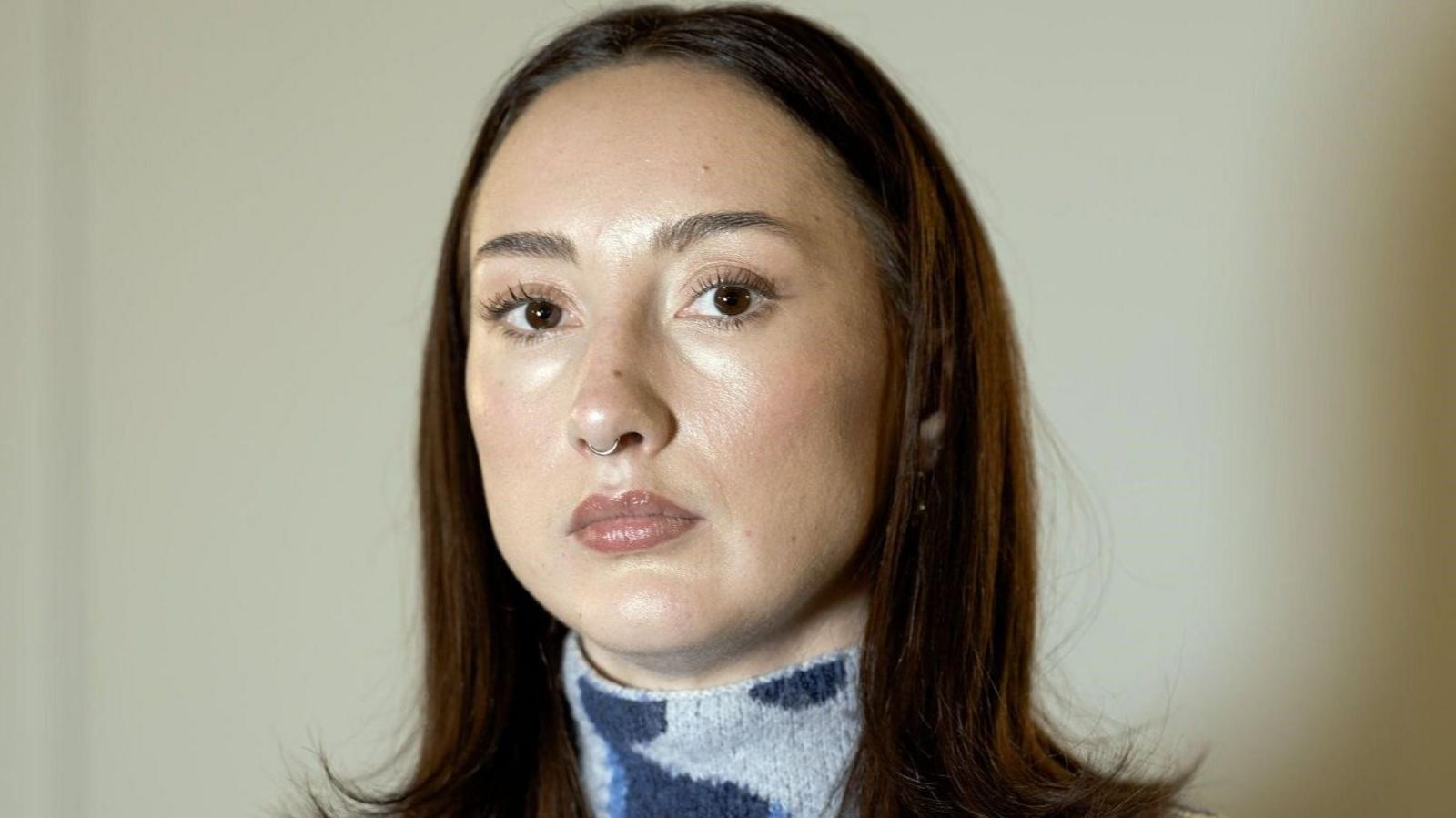
The Ask for Angela scheme is named after Angela Crompton, who was killed by her husband in 2012. Her daughter Hollie, pictured, says she wants more to be done to protect women
- Published
The daughter of the woman who was the inspiration for the Ask for Angela safety scheme is calling for government action to ensure it is implemented properly.
Angela Crompton was killed by her husband in 2012, with her name becoming the code word for people to use to seek help at venues like bars and pubs if they feel unsafe.
Her daughter Hollie, who has spoken to the BBC about the impact of her mum's death, says that while she feels "validated" by the official response to the failures with the scheme uncovered by the BBC she thinks more action is needed.
"We need safer spaces for women and tougher penalties for offenders. If the government can change the law to make this mandatory, then great."
The Ask for Angela, external scheme allows people who feel unsafe in bars or clubs to discreetly seek help. In response to hearing the word "Angela", staff should offer assistance such as helping the person feeling under threat to leave safely.
However, BBC secret filming recently revealed that more than half of venues visited failed to respond correctly, with many staff members completely unaware of what to do.
The BBC has since contacted 340 councils across the UK. We found that 34 have made Ask for Angela a condition of granting new alcohol licences, with 67 more local authorities – including Leeds, Middlesbrough, Southend and Nottingham – possibly set to follow suit.
Additionally, 47 councils say they are now actively testing venues to ensure the initiative works effectively. Some authorities have warned that businesses failing to operate the safety scheme properly could lose their licences.
Who was Angela?
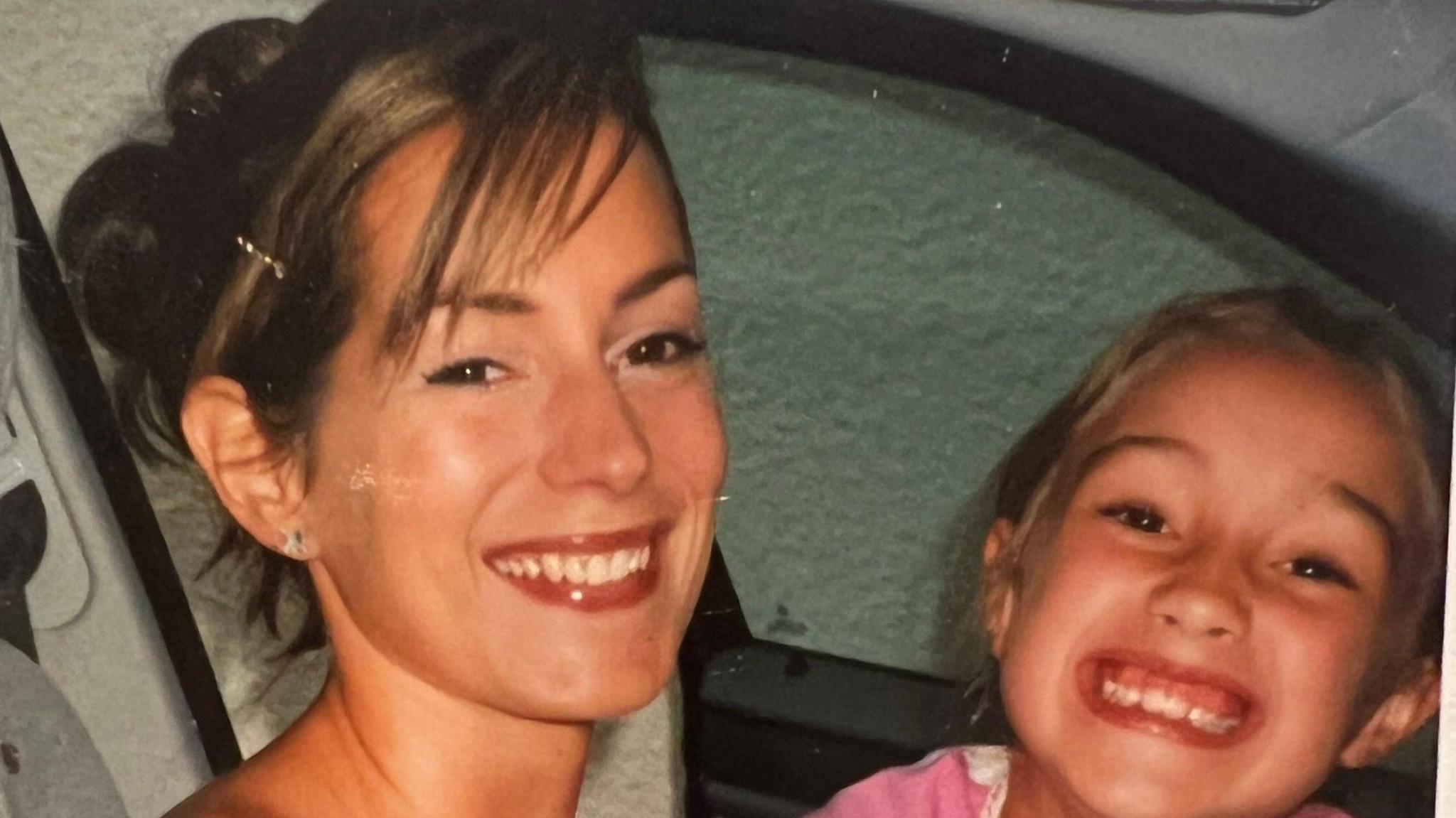
Angela Crompton with her daughter when Hollie was seven years old. Angela was killed by her husband Thomas Crompton in 2012
Waitress and make-up artist Angela Crompton was 34 when she was killed by her husband of just three months, Thomas Crompton, at their home near Norwich. He throttled Angela before getting a hammer and striking her multiple times over the head.
At trial, Crompton was convicted of manslaughter but cleared of murder after the jury was told he had lost control. He received a seven-and-a-half-year sentence and served four years in prison.
"She was the fun mum – very bubbly, outgoing, confident, creative and artistic," says Hollie, who has been speaking to the BBC for the first time about her mother's name being used for the safety initiative.
Hollie, who was 15 when Angela was killed, recalls the day she found out Crompton had attacked her mother.
"My dad came to pick me up and said: 'We've had a phone call. We're not entirely sure what's happened.' We rushed to the hospital, where we learned how extreme it was," Hollie says. "We were told she was on life support and was going to die any minute."
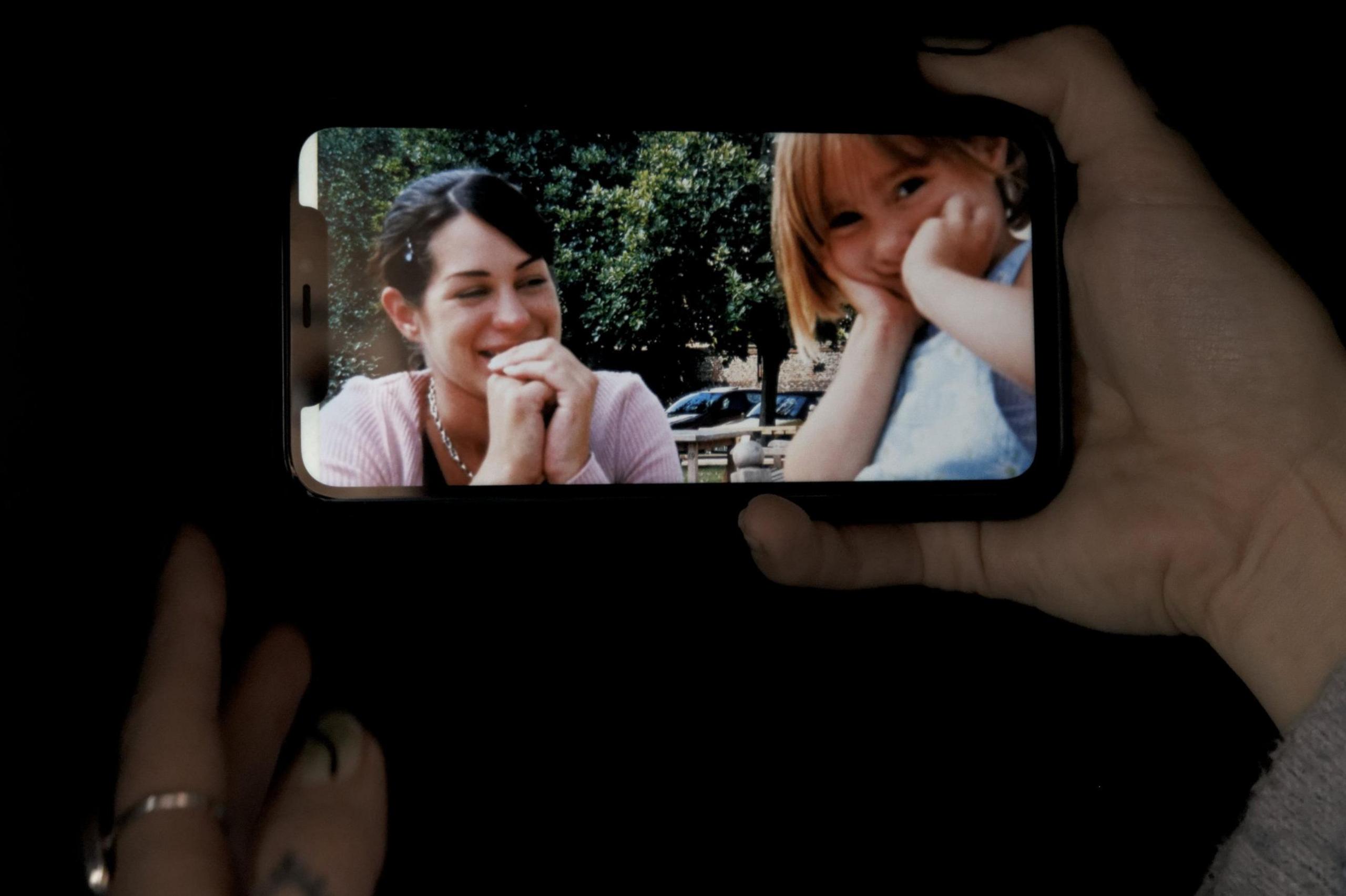
Angela Crompton, pictured here with Hollie, was killed by her husband Thomas Crompton in 2012 after only three months of marriage
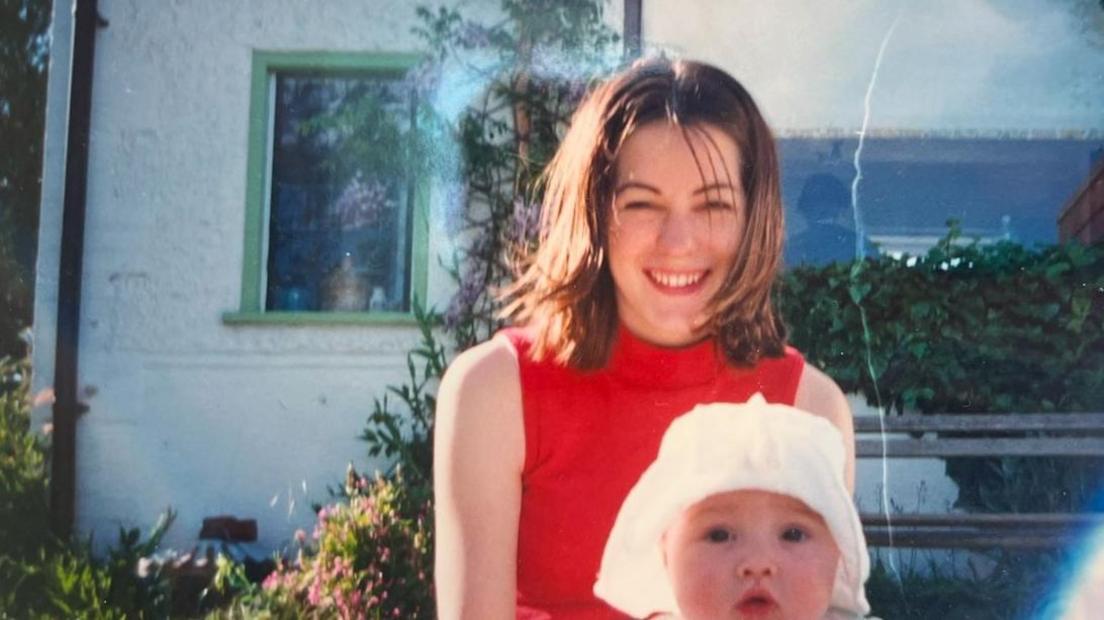
Angela with Hollie as a baby
Angela died in hospital two days later.
"This wasn't a momentary lapse," Hollie says of Crompton's attack.
"How long does it take for someone to lose consciousness when you're strangling them? Then he goes and grabs a hammer, comes back — that's a deliberate choice, so how can that be called 'losing control'?"
The verdict and sentence left the family devastated. "Most of the anger and frustration actually came after the court case," Hollie says.
"Just, like how has this justice system let us down so badly? How has this kind of thing essentially been allowed to happen and there's just been a slap on the wrist?"
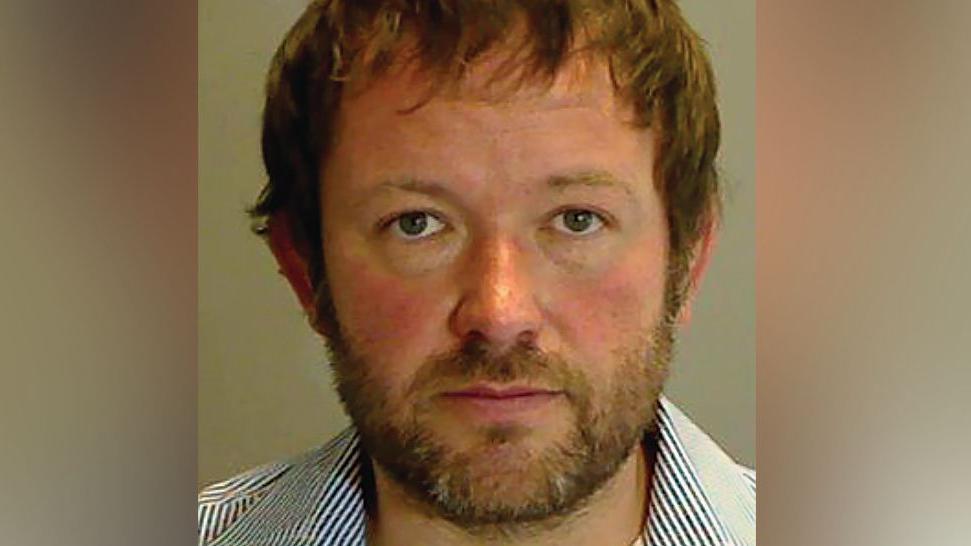
Thomas Crompton, who killed Angela Crompton in 2012, served four years of a seven-and-a-half-year sentence
The Ask for Angela initiative was created by a violence against women and girls campaigner from Lincolnshire who knew of Angela's case through a mutual friend. The scheme has since spread across Britain and to countries including the United States, Argentina and New Zealand.
For Hollie, discovering her mum's name had become associated with a global safety campaign provided an unexpected form of solace.
"I think it does massively help," she says. "When I found out essentially that the campaign was named after her, I think for me that was actually quite a sort of relief.
"I had so many emotions, so much sort of anger and frustration for me. I found this actually a really good way to channel that into this really positive campaign that's helping so many different people.
"When you think about how massive this is — not only in the UK, across Europe, Australia, even out in the US — it is wild to think that that is from that one thing. It's sometimes quite like, I guess almost a bit like, daunting in a way. It's just a bit surreal, really."
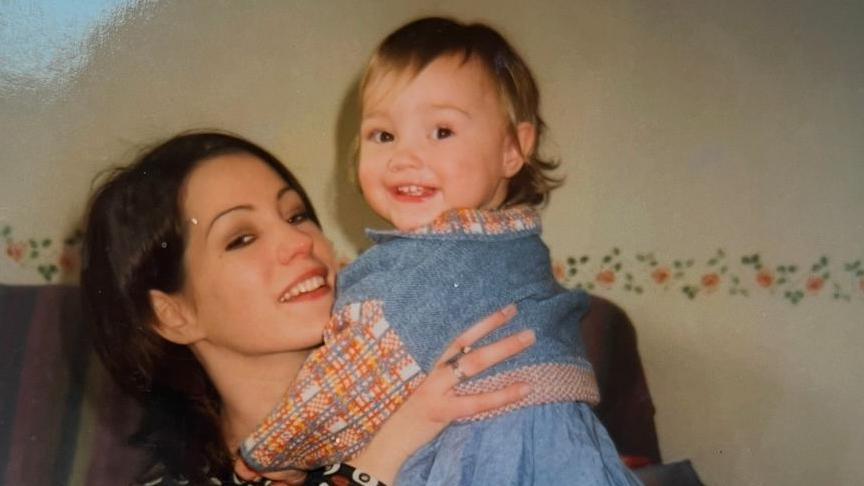
Hollie says she thinks her mum would be proud of the impact of the Ask for Angela scheme
Following the revelations about the Ask for Angela scheme in the BBC undercover report, major chains including Greene King and JD Wetherspoon, whose staff failed to recognise the code word, said they had implemented comprehensive staff training and overhauled their Ask for Angela protocols.
JD Wetherspoon said it had reissued training to all operational staff and strengthened its incident reporting systems, documenting 129 cases of women in distress who had received assistance since November.
Greene King said it had implemented extra training at its venues, increased safety signage and introduced formal documentation requirements, recording 18 incidents of vulnerable women seeking help since January.
A Freedom of Information request by the BBC reveals the extent of public money that has been used to fund the scheme.
About £13.1m in public funds has been allocated to Ask for Angela projects through the Home Office's Safer Streets Fund since 2021. The funding spans 22 police forces and local authorities across the UK.
Hollie's call for action
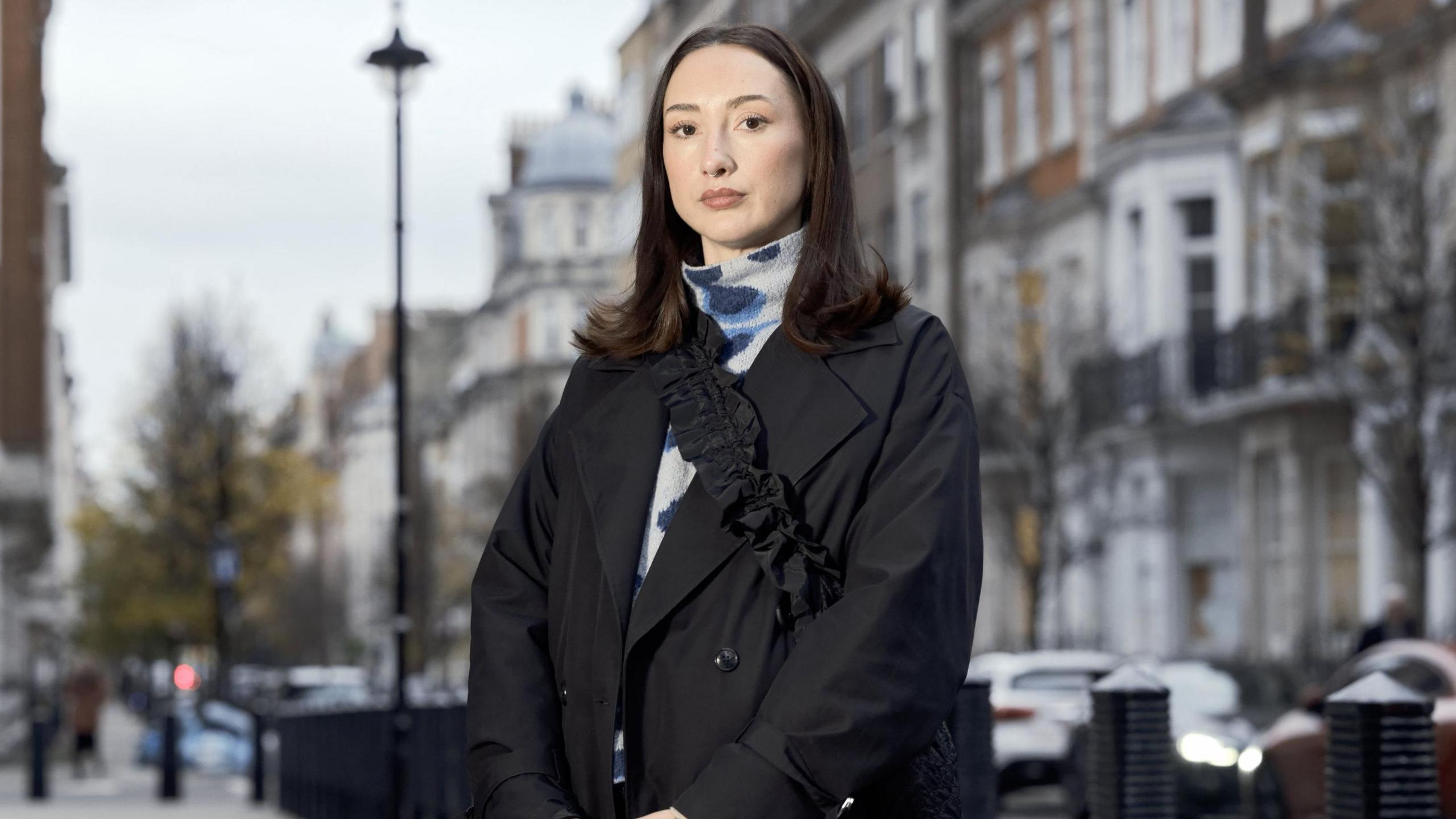
Hollie, now 28, wants the government to make the Ask for Angela scheme mandatory nationwide
The extent of council inspections, and participation in the Ask for Angela scheme in some cases being a licensing requirement are important steps forward made since the BBC's secret filming, Hollie believes.
"It's amazing that the councils are even writing this in, to make this essentially almost like a legality," she says. "I think she'd be proud. I think it's obviously like an amazing cause and it's helping so many people."
While welcoming the changes for the better seen so far, Hollie says more could be done.
"It needs to be tougher penalties for people that are doing the act," she told the BBC. "Like only half the battle is creating the safe space. The other half of the battle is getting people to not do these things and not have these behaviours."
BBC secret filming shows pubs not enforcing safety scheme
- Published13 November 2024
Ask for Angela: Staff had no clue, says pub worker
- Published18 November 2024
Speaking on BBC Breakfast, the women's safety campaigner and Ask for Angela ambassador Farah Benis said making Ask for Angela a licensing requirement was "a common-sense step towards improving safety in hospitality venues" and could "make the difference between someone getting home safe or being left at risk".
"It's already used in so many places voluntarily but without the mandate there's no real consistency to it, which is a really important part of it," she said.
A Home Office spokesperson said: "Our mission is to halve violence against women and girls in a decade and we have introduced a range of measures to make progress towards that goal, including new action to tackle the spiking of drinks, and to protect victims of stalking.
"We welcome the work of schemes like Ask for Angela in helping venues and businesses to support vulnerable women, and while this scheme is independent of government we strongly share its objectives to ensure that women feel safe in all areas of their lives, including when enjoying a night out.
"Whilst this scheme is independent of government, we continue to keep all policy and current legislation under review."
The government highlighted that the Licensing Act 2003 already requires licence-holders to uphold public safety and prevent crime, adding that recent measures include a new criminal offence for drink-spiking, more training for night-time economy staff and enhanced protection for stalking victims.
With additional reporting by Jonathan Fagg, BBC England Data Unit
Get in touch
Do you have a story to share with the BBC London investigations team in confidence?